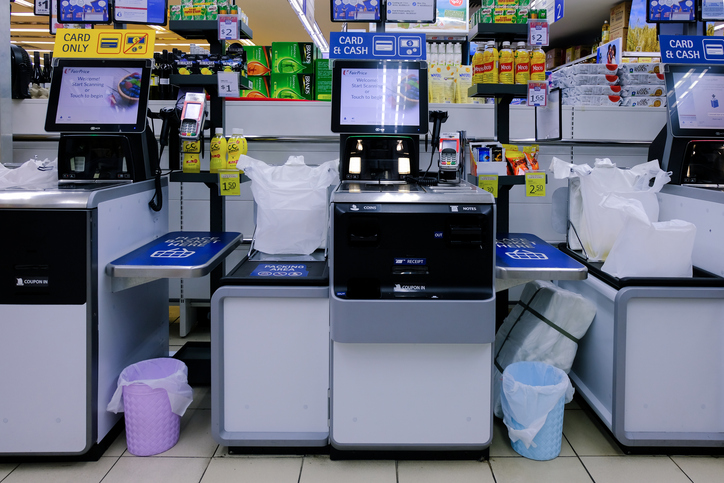In a turn of events contrary to earlier predictions, the anticipated dominance of all-self-checkout stores in retail is facing a surprising shift. Major retailers like Walmart and Canadian Tire are abandoning self-checkout machines in favor of traditional cashier-operated registers, citing reasons ranging from economic viability to customer preference. The Oldish is not surprised by this but feels elated!
The initial allure of self-checkout technology was rooted in the expectation of significant cost reductions for retailers. However, contrary to expectations, some stores found that self-checkout actually led to economic liabilities, largely due to factors such as theft. In a recent CBC article, Christopher Andrews, a sociologist and author, highlights that instead of cutting costs, retailers faced losses due to theft, prompting a reevaluation of self-checkout’s viability.
Moreover, the shift away from self-checkout machines is not solely driven by economic factors but also by customer preferences, particularly among older adults. Franchise owners like Scott Savage of Giant Tiger in Stratford, Ontario, recognized that many seniors prefer the personal touch of traditional registers over self-checkout machines. This sentiment is echoed by customers who appreciate the human interaction and express concerns about potential job loss resulting from automation. Some people, this author included, have refused to use self-checkout from the jump.
Furthermore, concerns about theft and the need for staffing to monitor self-checkout transactions have contributed to the abandonment of self-checkout in some stores. Retailers like Walmart and Dollar General have acknowledged the impact of theft, or “shrinkage,” on their bottom line and have opted to remove self-checkout machines from locations with high rates of disappearing merchandise.
The decision to revert to human cashiers is not without its challenges and implications. While it may enhance customer service and address concerns about theft, it also raises questions about the future of automation in retail. As retailers continue to experiment with different strategies, there is a recognition that any new approach may come with unforeseen consequences. Amazon, the parent company of Whole Foods, has discontinued its Just Walk Out program in favour of Dash Carts that has customers scanning grocery items as they are placed in their carts.
Despite the allure of convenience offered by self-checkout, the shift back to human-operated registers underscores the importance of social interaction and personalized service in retail. Studies have consistently shown the benefits of social engagement for older adults, including improved cognitive function and emotional well-being. By prioritizing human interaction over automation, retailers not only cater to customer preferences but also contribute to the social connectedness of their communities.
The resurgence of human cashiers in retail represents a nuanced response to the challenges posed by self-checkout technology. As retailers navigate the complexities of cost, customer preference and societal impact, they reaffirm the value of human interaction in an increasingly automated world. While the future of self-checkout remains uncertain, the return to human-operated registers signals a recognition of the enduring importance of personalized service and social engagement in retail environments.






Add Your Voice
0 Comments
Join the Discussion